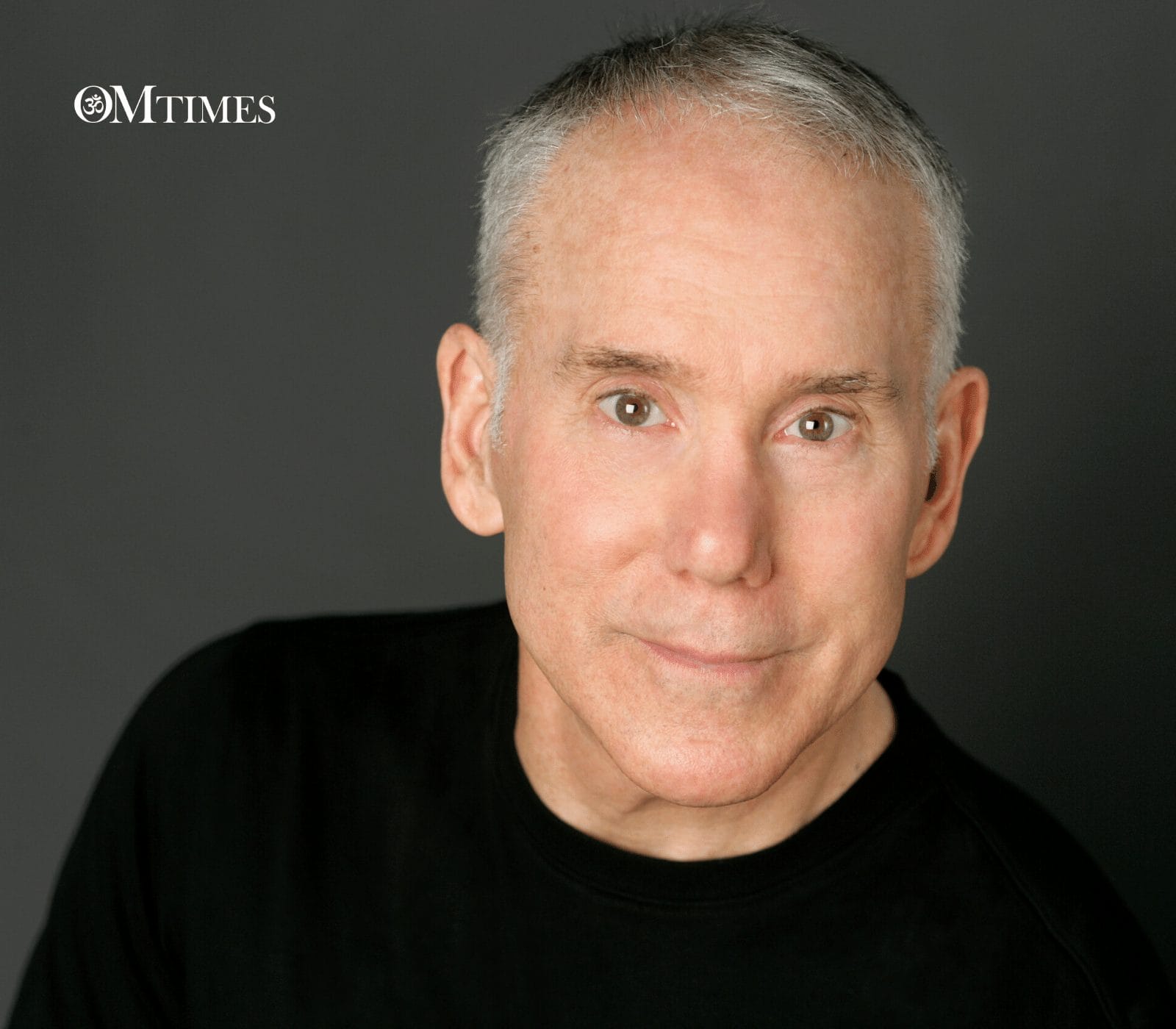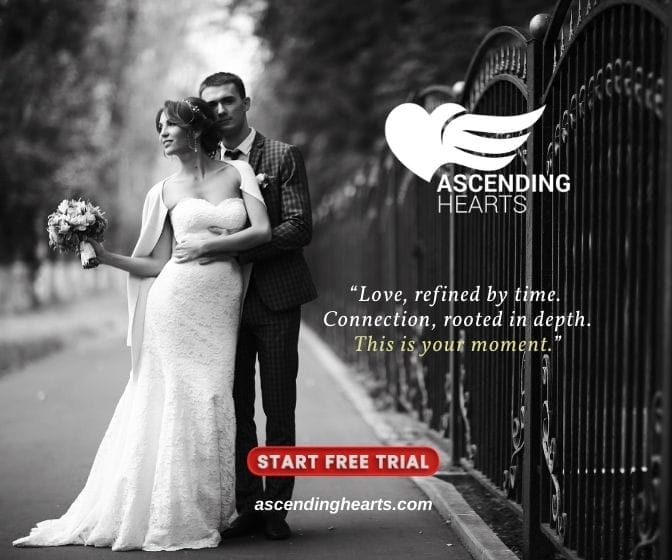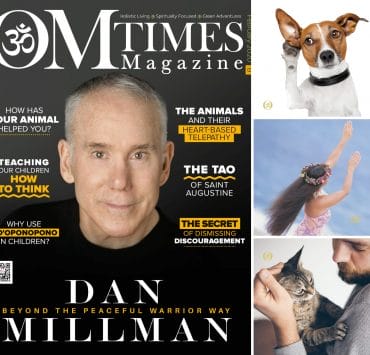Dan Millman: Beyond the Peaceful Warrior Way

So, it’s being able to step back and look at our lives from a distance and kind of sigh, and go ‘ah, yes.” Sort of a Taoist idea of accepting the way, the winding watercourse way, and flowing with it and with change. That’s humor, cosmic humor, and we need humor, especially today, with all the changes happening. And it doesn’t mean we don’t act. We can respond more effectively like any good martial arts practitioner when we’re flexible and relaxed and have a sense of distance and perspective. We don’t get wrapped up and uptight so much. That’s why it’s so helpful to understand and embody both the ability to change and grow and also to have a cosmic sense of humor about it all.
The key, for me, is a paradox. Most people confuse paradox with irony, but paradox really means two opposing ideas that are both true. If we recall the wonderful book Tale of Two Cities by Charles Dickens, it opens with ‘It was the best of times, it was the worst of times,’ followed by some other opposing pairs of statements that convey paradox. The paradox is the key to understanding spiritual life or the transcendental world because we spend most of our time in the conventional world, as we should. Our work and children, raising families and doing what we need to do in everyday life, but that’s not enough. There is more to life than news, weather, sports, and politics. We’ve all had a yearning for the transcendent at times. I believe every human is on a spiritual journey, whether they know it yet or not. B when we understand that there is another dimension, another world, the transcendent world, the world that calls us to religion or to spiritual practice, to understand the bigger picture of life, what we call spirituality or inspiration, we start to understand that different truths operate.
For example, does time exist? Conventionally speaking, yes. Transcendentally speaking, time is an illusion. Do we have free will? Conventionally speaking, sure, we make choices all the time. Transcendentally speaking, no, we don’t necessarily choose what we will choose. That may be shaped by destiny. There are other questions about are we separate selves? Sure, conventionally speaking, it’s demonstrable, but transcendentally speaking, we’re certainly all one, and so on. That’s how paradoxes can be a key to a much deeper understanding of the foundations of our lives.
SANDIE SEDGBEER: You cover happiness several times in several of your books –the meaning of happiness, feeling happy versus acting happy – and thinking about what you wrote, it occurred to me that people don’t whistle anymore. When I was a child, you used to see jolly chappies wandering down the street, hands in their pockets, whistling as if they didn’t have a care in the world. Nobody whistles anymore. People seem to be very serious. It’s hard for them to find humor and see this as a game. Everything is becoming so fearful for so many people.
DAN MILLMAN: That’s why there are so many somatic symptoms today of tension, problems, and illnesses. A young man came up to me once. I gave a talk at a University, and he walked up to me and said: “Dan, I know you do consultations with people, sometimes, and you must charge a lot of money. What can you tell a poor college student for a dollar?” So, I smiled at him, and I told him six words that could change his life, a lifetime practice, and those six words were: “Here and now breathe and relax.” And if we just practice that a little bit each day: ‘Just remember, where am I? I’m here. What time is it now? Just breathe, take a deep breath.’ No matter what circumstance, we can always take a deep breath, and we can relax. We can shake loose. You see, people are worried about stress, and stress is an idea, it’s not a thing. Stress is just a word we have, a concept when we resist something we don’t like. People can get stressed at happy occasions, weddings, family gatherings. It’s not just a bad thing to cause stress. I joke with people sometimes and say ‘I can tell you exactly how to feel no more stress in your life.’ And they go: ‘Oh, what is that?’ I say, ‘Just don’t care about anything.’ But we do care about things, and it’s not realistic advice because we’re engaged with life, we do care.
So, stress is part of our lives. It’s a natural thing. However, I can offer more helpful advice in the sense that stress, when we’re relaxed, is very different from stress when we’re tense. So, while we’re going through stressful situations, it’s especially important to shake loose and take a deep breath, and that can change our relationship to stress because it’s not the stress that hurts us; it’s the tension associated with it. We have control over that. We don’t have control over stress, but we do have control over whether we’re tense or relaxed. So, that’s just a word to the wise.
SANDIE SEDGBEER: You mentioned earlier when we were talking about your book on numerology, the children that have been born since the millennium. Their lives are much more stressful than my children’s lives were growing up. Apart from the fact that we live in a digital age, there’s a lot of stress on them, a lot of pressure, and we’re seeing a horrible rise in young people committing suicide, which is really sad. You’ve written two books for children, Quest for the Crystal Castle, A Peaceful Warrior’s Children’s Book and Secrets of the Peaceful Warrior which is for the nine to ten-year-olds. Let’s talk a little bit about The Peaceful Warrior and what people or parents, especially, can learn from that to help their children.
DAN MILLMAN: I have three daughters, and I’m proud of all of them, and we have grandchildren, so it’s a second helping. My publishers said, can you write A Peaceful Warrior book for children, and I sat back, and I tried to model it after the first book. But I wanted to inculcate some fundamental values that children could relate to. It wasn’t preachy. So, I ended up writing these two children’s books, but parents ask me: ‘Should I teach my children, my three-year-old to meditate?’ I often don’t recommend that because children are like puppies. Their needs are simple. They need to be hugged, they need attention sometimes to show they’re valuable and worthwhile, and they need to eat when they’re hungry and get enough rest and then we just need to get out of their way. So, I think we don’t need to help children. Let them play and discover life and have some alone time away from screens and that sort of thing. That’s what we practice with our children and grandchildren.
If I can return for a moment to the idea of happiness, as I didn’t really respond to your question. I would say, in terms of happiness, I don’t see it as a good feeling. Certainly, it’s nicer to feel happy than the alternative, but feelings are not really under our control, and if we were happy all the time, we wouldn’t even know it. It’s been said the measure of our sorrows is also the measure of our joy. So, when we have a cold, we really appreciate good health. When we’re feeling unhappy, we appreciate the sense of happiness, fulfillment, satisfaction, so to me, happiness is a practice. People ask me: ‘What do you mean, a practice? How can you practice it?’ Well, I tell people: ‘I do not recommend that you feel happy, or peaceful, or loving, or grateful, or kind, or courageous, or confident.; I recommend you practice behaving that way, and people go: ‘Well, isn’t that kind of inauthentic behaving that way if you don’t feel it?’ I ask: ‘Well, what if you’re feeling afraid, but you behave with courage? Is that inauthentic or is that a virtue?’
Just as we can behave with courage when we’re feeling afraid, we can behave with kindness when we’re feeling irritated. We can behave with gratitude and say ‘thank you’ whether or not we happen to be feeling grateful at the moment, and we can practice happiness by behaving the way we do when we’re feeling happy. We’re more expansive, we’re kinder, so happiness can be a radiant practice, and that’s the practice I do in everyday life. I practice all these things; whatever feelings happen to be passing through me. This is a radical teaching, and you don’t hear it very much. So, I wanted to share that with your listeners.
SANDIE SEDGBEER: I’m glad you did because that also is extremely relevant for parents. I was going to ask you if you had any suggestions on advice that parents might give to their children but, you’ve already answered that: we don’t have to give them advice; they don’t want to hear it. But if we model happiness and show them how they also can act happy in those moments in their lives that are challenging for them, we’re giving them a great gift right there.
DAN MILLMAN: I would agree with you. You know, the Writer, James Baldwin, once said: ‘Children have never been very good at listening to what their parents tell them, but they never fail to imitate them.’ It doesn’t mean we have to be perfect; nobody is. We make mistakes, but we own up to it. That’s something a parent can do. ‘I’m sorry, I ask your forgiveness, I apologize because I messed up. I was miserable and tired, and I yelled at you.’ That sort of thing. We’re open. Children learn from that. Albert Schweitzer once said: ‘In influencing other people, the example is not the main thing; it’s the only thing.’
By the time we’re really good parents, they call us grandparents, and by that time our children don’t want to listen to our grandparents’ advice as they have their own children to raise. Somehow, generation to generation, we’re learning, and even today with the chaos of politics in the world today, and trends and changes, we are learning. These are teachable moments, and I think we will come out stronger on the other end of it. It may not show right away, but I believe we are evolving. Life is better today than it was 100 or 200 or more years ago. There are fewer wars today, fewer people being killed, fewer impoverished people on the planet compared to 100 years ago, and so on. So, ultimately, I’m an optimist even though I’m not always in the short term.
SANDIE SEDGBEER: I’m glad you ended with that because we need to remember this, especially in such difficult times. Dan Millman, thank you.
You can listen to Sandie Sedgbeer’s interview with Dan Millman here: Dan Millman – The Peaceful Warrior’s Way: 40 Years of Life-Changing Wisdom
For more information on Dan Millman’s work, The Peaceful Warrior and other books, and to use his free Discover Your Life Purpose calculator, visit www.peacefulwarrior.com.
A veteran broadcaster, author, and media consultant, Sandie Sedgbeer brings her incisive interviewing style to a brand new series of radio programs, What Is Going OM on OMTimes Radio, showcasing the world’s leading thinkers, scientists, authors, educators and parenting experts whose ideas are at the cutting edge. A professional journalist who cut her teeth in the ultra-competitive world of British newspapers and magazines, Sandie has interviewed a wide range of personalities from authors, scientists, celebrities, spiritual teachers, and politicians.






